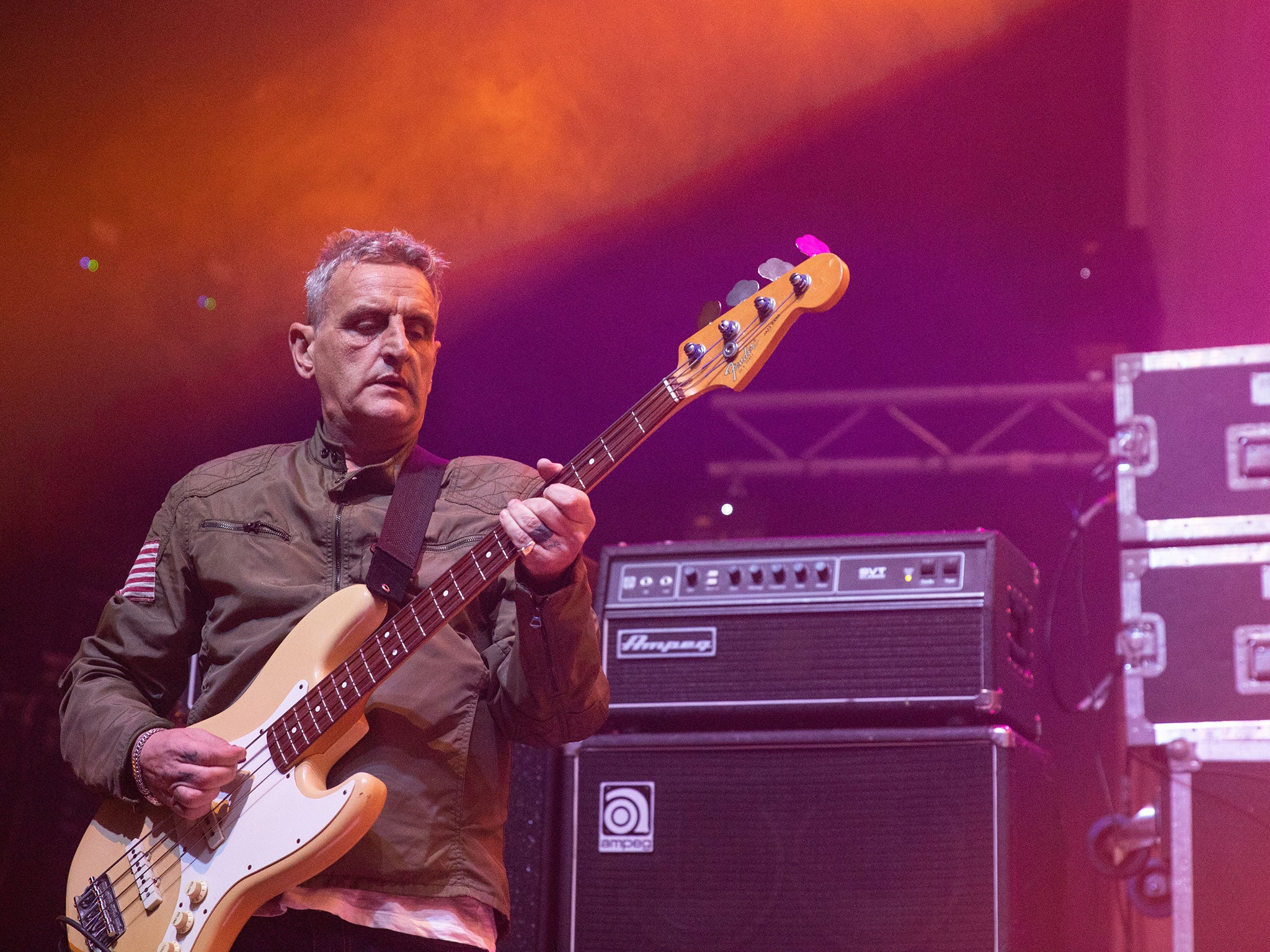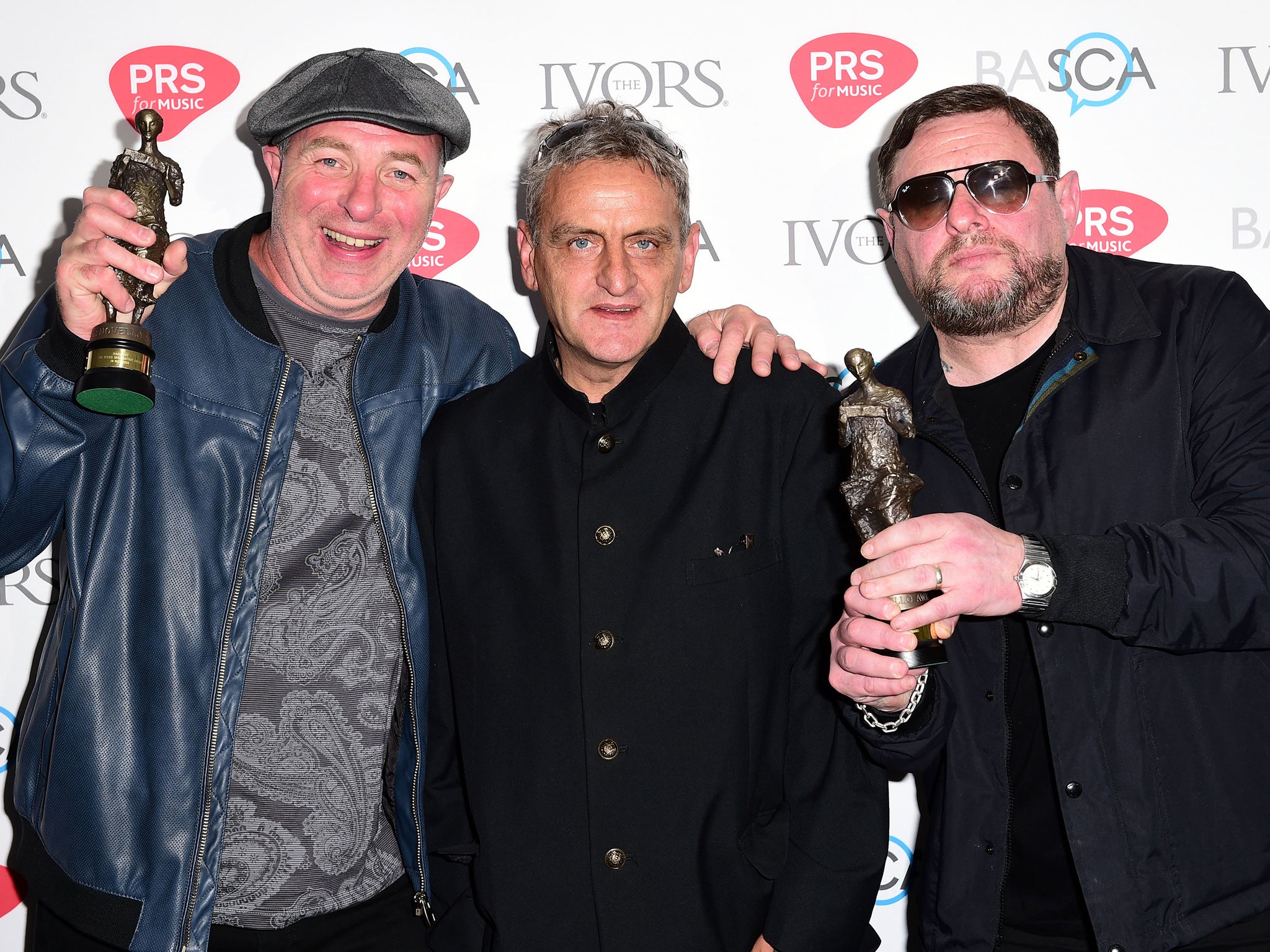Paul Ryder: Bass guitarist who brought funk to Happy Mondays
The younger brother of the ‘Madchester’-spawned group’s frontman Shaun, created infectious grooves to underpin the band’s untutored but inimitable indie-dance sound

Paul Ryder, who has died aged 58, was the bass guitarist in Happy Mondays, a band which followed on from the success of New Order in bringing life to an Ecstasy-inspired northwest music scene described as “Madchester” in the late 1980s.
With his elder brother, Shaun, as lead singer, their style combined indie, house and northern soul, and Ryder was credited with adding funk to a mix that brought the band its biggest hits, “Kinky Afro” and “Step On” – a cover of the 1971 John Kongos hit “He’s Gonna Step on You Again” – which both charted at No 5 in 1990.
“Kinky Afro”, also Happy Mondays’ most successful single in the US, was written by the Ryder brothers with the band’s guitarist, Mark Day, keyboard player Paul Davis and drummer Gary Whelan.
It began during a rehearsal session. “I’d been listening to Hot Chocolate’s greatest hits, so played a bassline with a similar feel, and Gaz [Whelan] came up with a drum beat,” recalled Paul.
When the band travelled to Los Angeles to record their third album, Pills ’n’ Thrills and Bellyaches (1990), they picked up the unfinished song, Day added guitar riffs and Shaun came up with a lyric that was close to home for both of the brothers.
“I think ‘Kinky Afro’s’ opening line – ‘Son, I’m 30, I only went with your mother cos she’s dirty’ – is about me, because I had a kid young,” Paul told The Guardian in 2014.
“Because I’m Shaun’s younger brother, he was always observing me up close. ‘I don’t have a decent bone in me’ could be Shaun singing about himself. He was up to a lot of bad things at that point.”
World tours and four studio albums brought Happy Mondays fame and imprinted their sound on an era, but their implosion seemed inevitable as the band members’ drug dependencies deepened.
In 1992, Factory Records despatched them to Barbados to record their fourth album, Yes Please!, believing they could not obtain heroin there. Instead, a dealer sold them crack cocaine and, when they ran out of money, the dysfunctional group sold equipment from the recording studio.
They broke up the following year – having also contributed to the collapse of Factory Records – but enjoyed a brief reunion (1999-2001), when they had another hit single with a cover of Thin Lizzy’s “The Boys Are Back in Town” (1999).
Then they were then featured in the 2002 film 24 Hour Party People (titled after Happy Mondays’ 1987 single), tracing the history of Factory Records and its founder, TV presenter Tony Wilson, played by Steve Coogan.
Royal Shakespeare Company actor Paul Popplewell took the role of Paul Ryder, while the real bass guitarist had a cameo as a gangster.
His departure from the band in 2001 and move to the US spelled the end of Happy Mondays until they were reunited – minus him – in 2004. He said he had ditched drugs and “being in a band with my brother was not going to be conducive to sobriety”.
Nevertheless, the brothers were together again when the original line-up reformed in 2012. Just 10 years later, Ryder died shortly before he was due to go on stage with them.
Paul Anthony Ryder was born in Salford, Lancashire, on 24 April 1964 to Linda (née Carroll), a nurse, and Derek Ryder, a postal worker, and brought up in the city’s suburb of Little Hulton.
His early influences were Motown music, particularly the bass guitar of session musician James Jamerson on hits by artists such as The Supremes, Stevie Wonder and Marvin Gaye, and The Stranglers’ Jean-Jacques Burnel.

When, aged 13, he went to see Thin Lizzy playing in Manchester, co-lead guitarist Scott Gorham threw his pick into the audience and he caught it. Having received a bass guitar as a birthday present from his musical father, he used it to learn to play the instrument.
In 1980, on leaving school, Ryder worked for the Royal Mail and teamed up with his brother – who had already spent time in youth custody for a theft offence – to form a band with Whelan and Day.
Davis joined them the following year and they performed cover hits at youth clubs, first without a name, then as Avant Garde and Penguin Dice.
Day and Ryder both claimed responsibility for coining the name Happy Mondays in 1983. Day said he was inspired by the New Order hit “Blue Monday”, while Ryder attributed it to celebrating the day when unemployed people generally received their benefit cheques. It was “the day for getting off your face”, he said.
He also brought the band to the attention of Wilson by putting a demo cassette through the door of New Order bass guitarist Peter Hook on his post round. As well as being signed to Factory, they performed at his club, the Hacienda, which put Manchester on the “cultural cool” map.
Their first releases, the Forty Five EP (1985) and the single “Freaky Dancin’” (1986), flopped, but the follow-ups broke through into the indie chart, as did Happy Mondays’ 1987 debut album, the curiously titled Squirrel and G-Man Twenty Four Hour Party People Plastic Face Carnt Smile (White Out).
A second LP, Bummed, followed in 1988 – with Mark “Bez” Berry joining the line-up on percussion, or most visibly as an enthusiastic maraca shaker and vibes man – and, as their popularity spread, the band toured Britain and mainland Europe (1988-9), then North America (1989).
By the time of their biggest hit singles, Rowetta Satchell had joined as a backing vocalist.
Paul McCartney said in 1990 that they reminded him of The Beatles in their “Strawberry Fields” phase.
During Happy Mondays’ second incarnation, the band supported Oasis at two Wembley gigs during the other Manchester band’s “Standing on the Shoulder of Giants” arena tour in 2000.
Ryder then moved to Los Angeles before forming his own group, Big Arm, which released a 2007 album entitled Radiator and toured Britain that year as support to former Stone Roses singer Ian Brown.
His return to Happy Mondays five years later was followed by a much happier phase with his brother and bandmates, touring Europe, New Zealand and Australia.
Following a divorce in 1991 from his childhood sweetheart Alison, Ryder had a five-year relationship with Astrella Leitch, daughter of pop singer Donovan. His continuing drug addiction then led him to be sectioned, spending time in a Salford psychiatric unit.
After moving to the US, he started a relationship with Angela Smith, a British television producer who divided her time between Los Angeles and Manchester. He is survived by their children, Sonny Paul and Chico, as well as the two children of his first marriage, Amelia and Jacob, a drummer.
Paul Ryder, bass guitarist, born 24 April 1964, died 15 July 2022

